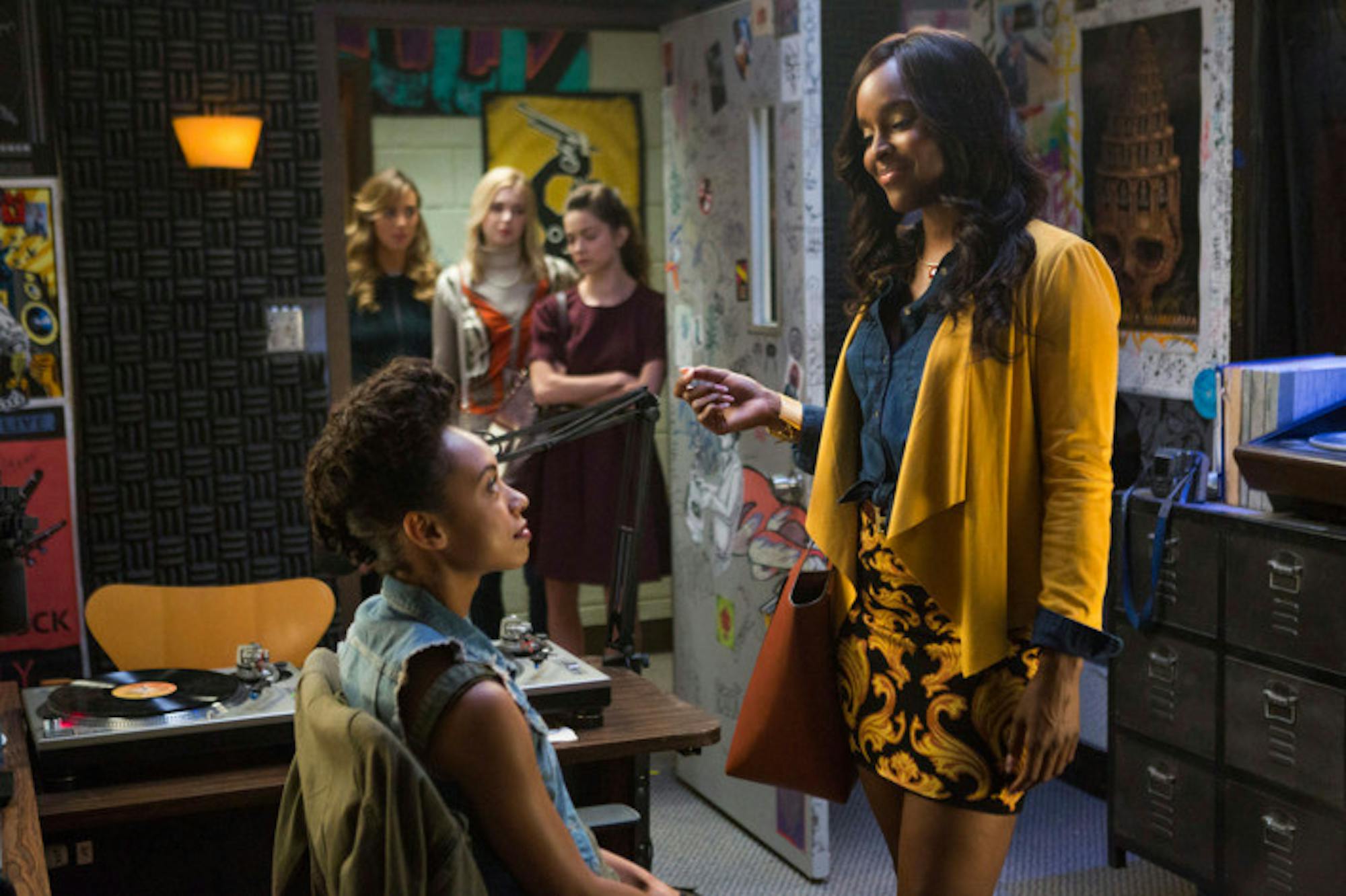Netflixhas been producing its own shows for years now, and it has seen much success in making its own content. While most of these shows are unique, notmany are focused around creating dialogue and givingvoices to marginalized groups of people. Enter “Dear White People” (2017–present), one of Netflix's latest television series based on the 2014 movie of the same name. Unlike some of the company's other shows, “Dear White People” proves to be a success for its hard-hitting, fearless message that racism is alive and well, and its acting and story prove more than enough to drown out the few clichés the show struggles with.
The series is set at a fictional ninth Ivy League college, named Winchester University, and it follows a number of black students as they struggle to make their voices heard amidst the belief that racism, especially at universities, is a thing of the past. The showrevolves around a fewcorecharacters, including Samantha ‘Sam’ White (Logan Browning), who hosts a college radio show aptly named "Dear White People." After a club at Winchester holds a blackfacepartyprotestingSam’sshow, she finds herself at the forefront of the protest movement. Sam has secrets -- including her whitehookup, Gabe Mitchell (John Patrick Amedori) -- that may end up hurting her and her cause. The show also focuses on herbestfriendJoelle Brooks (Ashley Blaine Featherson), her ex-friend Colandrea ‘Coco’ Connors (Antoinette Robertson), aspiring student body president Troy Fairbanks (Brandon P. Bell) and timid journalist Lionel Higgins (DeRon Horton) as they clash over how to deal with the party and address the racismclearlypresent at Winchester.
While many have protested the show’smessage, “Dear White People” is not afraid to talkabout the race problems American society still faces today, even on a liberal college campus. Race is typically a taboosubject; people are oftenmocked and belittled for attempting to point outracially bound societal issues and are accused of makingrace an issuewhen it "doesn’t have to be." The brilliance of this show is its unabashed insight into the complicated world of race, whether that means championing the efforts of Winchester’sblack student groups or exploring the complications and struggles its characters face while trying to navigate their own identities.
Sam’s relationship with Gabe provides the perfect insight into these struggles. After it is revealed at a meeting of black student groups that she has been dating a whiteperson, Sam has to reconcileherpersonalfeelings, her friends’ opinions and her activism on campus — the show clearly screams that nothing about race is easy. Yet while this may seem obvious, it is a message often forgotten in today’s world and one which many people still need to hear.
Unfortunately, the first few episodes don’t feel quite as good as the last; there are too many clichés at first to provide a truly enjoyable experience, and it is only after a few episodes that it feels like the cast finally begins to reveal their talent and open up to the audience — strange for a show that isn’t live and shouldn’t need time to be great. Luckily, the cast proves strong enough to overcome this, and even if it is disappointing at first, the show’s progression is more enjoyable because of it.
Another highlight comes from the show's plot line, which often feels all too similar to the real world. The problems that the show's characters face are not out of the realm of possibility by any means, and this fact makes the show truly believable, helping draw in its audience without feeling too over-the-top. Indeed, the presence of a group at Winchesterdedicated to being “politically incorrect,” the satire magazine Pastiche, hints at the problems faced in the United States today, especially when led by those who proudly label themselves as such. Again, the message is clear: Racism is alive and race cannot be ignored, even by the characters who actively rage against both of these ideas.
Despite the show's strength, the fact that a critically-acclaimed series featuring a diverse cast only seems to be possible when the series is specifically about race is troubling, and it speaks to the wide racial gap still present in the entertainment industry today. This problem is not unique to Netflix or to any one industry but rather belongs to our society as a whole. There are voices being silenced because people do not cast people of color in most television and movie roles, but as “Dear White People” proves, these actors are no less talented than their white counterparts; they are simply disadvantaged in a society that often refuses to acknowledge that the United States cannot just sweep race under the rug.
So, dear white people: Watch this show. Watch it to connect with a side of the United States that you might not be aware of, and please watch it without passing judgment. There are bigger things at stake than hurt white feelings, anyway.
Netflix's 'Dear White People' successfully explores race problems

Sam (Logan Browning) and Coco (Antoinette Robertson) have a conversation in Netflix's new TV series 'Dear White People.'
Summary
"Dear White People" successfully navigates the challenges of discussing race in America while proving you can be both entertaining and substantial
4.5 Stars





